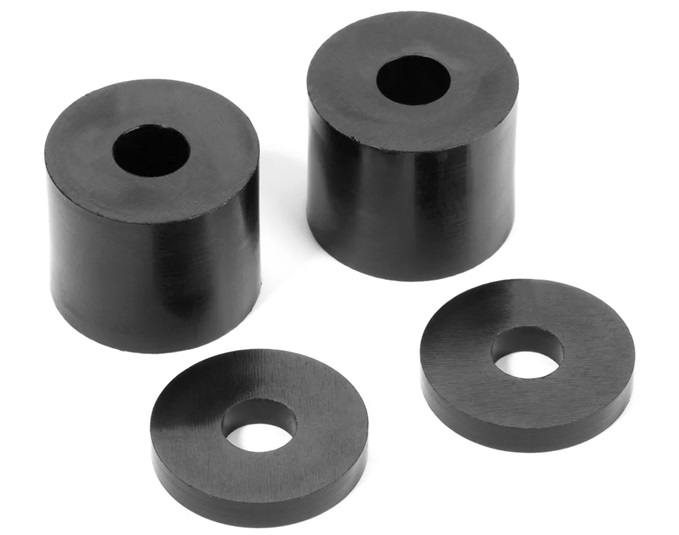Features of Rubber Design Bulkhead Penetrations
When it comes to safeguarding utilities in industrial and marine environments, rubber design bulkhead penetrations are essential. These systems provide secure passage for pipes, cables, and other utilities through bulkheads while maintaining the structural integrity and safety of the installation.
Curious about their unique features? Dive into the details and explore why rubber design bulkhead penetrations are the go-to solution for demanding environments.
1. What Are Rubber Design Bulkhead Penetrations?
Understanding the Basics
Rubber design bulkhead penetrations are specialized systems that allow utilities to pass through bulkheads without compromising the seal’s integrity. They are crafted with high-quality rubber to provide flexibility and durability.
Why They Matter
These systems prevent leaks, ensure fire resistance, and maintain the compartmentalization of spaces, making them a critical safety feature in marine and industrial settings.
2. Exceptional Watertight Sealing
Protecting Against Water Intrusion
One of the standout features of rubber bulkhead penetrations is their watertight seal. This ensures no water can leak between compartments, which is crucial in ships and offshore platforms.
Maintaining Long-Term Performance
The elasticity of rubber allows it to maintain a tight seal over time, even under changing conditions like pressure and temperature.
3. Airtight Performance for Hazard Prevention
Containing Hazardous Gases
Rubber penetrations create an airtight barrier, preventing hazardous gases from spreading between compartments and reducing the risk of contamination.
Enhancing Safety in Industrial Settings
Factories and refineries benefit greatly from airtight seals, as they help maintain controlled environments and ensure worker safety.
4. Fire-Resistant Properties
Withstanding High Temperatures
Rubber design bulkhead penetrations are engineered to resist extreme heat, providing fire-resistant barriers that protect critical areas during emergencies.
Meeting Industry Standards
These systems comply with stringent fire safety regulations, ensuring they can perform reliably under intense conditions.
5. Vibration Absorption and Noise Reduction
Dampening Vibrations
Rubber’s natural flexibility allows it to absorb vibrations from machinery, engines, or external forces. This reduces strain on cables and pipes, extending their lifespan.
Minimizing Noise Pollution
By dampening vibrations, rubber penetrations also reduce noise, creating a quieter and more efficient working environment.
6. Corrosion Resistance
Durable in Harsh Environments
In marine and industrial settings, exposure to saltwater, humidity, and chemicals is inevitable. Rubber bulkhead penetrations resist corrosion, ensuring long-term durability.
Preventing Structural Degradation
By protecting utilities and the surrounding structure, these penetrations contribute to the overall longevity of the installation.
7. Flexibility for Movement and Expansion
Adapting to Changing Conditions
Rubber penetrations accommodate slight movements or expansions in pipes and cables, which is especially important in environments subject to thermal expansion or vibrations.
Reducing Wear and Tear
This flexibility minimizes stress on utilities, preventing cracks, breaks, or leaks over time.
8. Easy Installation and Maintenance
Simplified Installation Process
Rubber design bulkhead penetrations are user-friendly, making them easy to install. Their adaptability ensures they fit a variety of bulkhead configurations.
Minimal Maintenance Needs
Once installed, these systems require little maintenance, offering consistent performance and reducing downtime.
9. Compatibility with Multiple Applications
Marine Use
From submarines to cargo ships, rubber bulkhead penetrations are ideal for marine applications, where watertight and fire-resistant barriers are essential.
Industrial and Infrastructure Projects
Factories, tunnels, and power plants benefit from these systems’ ability to maintain safety and compartmentalization while protecting utilities.
10. Customization Options
Tailored to Your Needs
Rubber bulkhead penetrations can be customized to meet specific project requirements, ensuring optimal performance in unique environments.
Versatility Across Industries
Whether for marine, industrial, or construction use, these systems can be adapted to suit a wide range of applications.
11. Supporting Sustainability
Eco-Friendly Material Options
Many rubber designs incorporate environmentally friendly materials, reducing their ecological footprint.
Contributing to Energy Efficiency
By maintaining airtight and watertight seals, these penetrations help reduce energy loss, improving efficiency in industrial and marine operations.
12. Cost-Effectiveness
Long-Term Savings
With their durability and minimal maintenance requirements, rubber bulkhead penetrations are a cost-effective solution, saving money on repairs and replacements.
Reducing Downtime
By preventing issues like leaks or fire hazards, these systems help avoid costly interruptions to operations.
Conclusion
Rubber design bulkhead penetrations combine innovation and functionality to deliver unparalleled safety and performance in demanding environments. From watertight seals to fire resistance and vibration absorption, their features make them indispensable in marine, industrial, and infrastructure applications.














Post Comment